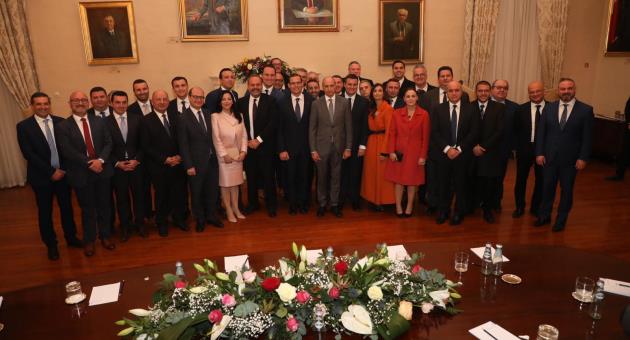
A European Commission review of Malta’s progress on necessary reforms is expected to criticise Malta’s slow progress in fighting money laundering and fixing weaknesses in the governance of the country.
“There remains room to mitigate the risks from money laundering,” a draft EU Commission six-monthly review is expected to remark. The Commission will acknowledge improvements in technology and human resources improvements in Malta’s anti-money laundering agencies and improvements in policies and procedures in the fight against dirty money. “However, there has been insufficient action to tackle flaws in the frameworks for investigating and prosecuting money laundering,” the Commission will say.
The Commission is expected to have harder words on weaknesses in Malta’s governance framework on which it will say weaknesses continue to “persist, particularly in the judicial independence”.
The government has not yet published detailed plans on reforming the method of appointing judges which the Venice Commission found were not in conformity with contemporary democratic standards. The Venice Commission’s report was published in December 2018 but the government ignored it and appointed 6 members of the judiciary in April 2019 also ignoring a case filed by NGO Repubblika demanding changes to the law.
The case is due to be heard by the European Court of Justice during 2020.
The European Commission will report that “limited progress was made to strengthen the independence of the judiciary. The government announced its intention to tackle the issue but concrete measures on the appointment and dismissal of judges have been announced but have not been taken yet.” The text suggests that the government may have shared its plans for judicial reforms but these have not been published yet.
On other governance aspects the Commission is expected to report that “although police resources are being increased, efforts to detect and prosecute corruption remain insufficient. Reforms to improve the criminal justice system have not yet been implemented.”
The Commission is also unimpressed with reforms introduced by Owen Bonnici when he was still justice minister to the office of the attorney general. Acknowledging that “on the prosecution services, the government took steps to create an autonomous prosecution service, with the adoption of the State Advocate Act,” the Commission is expected to find that “the reform appears insufficient to meet existing concerns about the independent functioning, effectiveness, and accountability of the prosecution services.”
“Concerns remain over checks and balances in the appointment procedure for the Attorney General, which in practice remains under the exclusive power of the Government,” the Commission is expected to remark.
The six-month review covers other areas of reforms expected from Malta with mixed progress scored given to Malta in the upcoming review report.
Malta made “limited progress” on transport and traffic congestion and no progress at all on ensuring long-term sustainability of public finances by addressing shortcomings of the pension and healthcare systems and addressing features of the tax system that may facilitate aggressive tax planning.
The final document is expected to be presented to local stakeholders in April.